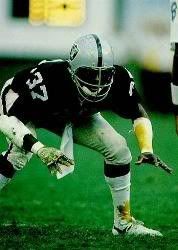Saint John wrote:
There was no risk taken with ROR. None. It was either going to (relatively speaking) flop (which it did) or it was going to be a huge success and be the transitional tool for Perry's solo career. He took over every aspect of the album to drive his agenda, and he put himself in a win/win situation. If it flops he can bury the band (and did). If it's a big success and sells 10 million, he can attempt to take all of the fans of that new (dated and shitty) sound with him. Personally, I think he got the result he desired most. But he had his bet hedged, in the event that it did sell big. But there was nothing risky or innovative about that album. Drum machines, dated grooves and yesteryear's R&B vocals weren't all that impressive. And it showed, factually, as people flocked in droves to Def Leppard and Bon Jovi and bought their albums at almost a 4-1 ratio. Bon Jovi and Def Leppard went forward with their sound and Steve Cooke took Journey backwards about 25 years. And the numbers say as much.
I'm going to modify that slightly. As you said, ROR was a win-win situation for Perry. It WAS a risk for Journey, as is every time a band changes its sound. It was certainly a risk for the label, who for sure would have been happier with a continuation of the Escape/Frontiers sound. For the general listener, a rock/pop combo would have been more profitable than the Motown/R&B/pop combo that ROR turned out to be. More than anything, they alienated the rock fans and failed to find the Motown/R&B fanbase that would be needed for a hit record. That was most certainly a known risk in releasing that album.
See if you can find a pattern here...
Bon Jovi Slippery When Wet --> rock album with pop tunes --> major success
Def Leppard Hysteria --> rock album with pop tunes --> major success
Journey ROR --> Motown/R&B/Pop/Journey combo with some pop tunes --> middle-of-the-road sales for a very popular band
Eclipse is the polar opposite. Journey released a hard rock album at the expense of alienating the pop fanbase.




